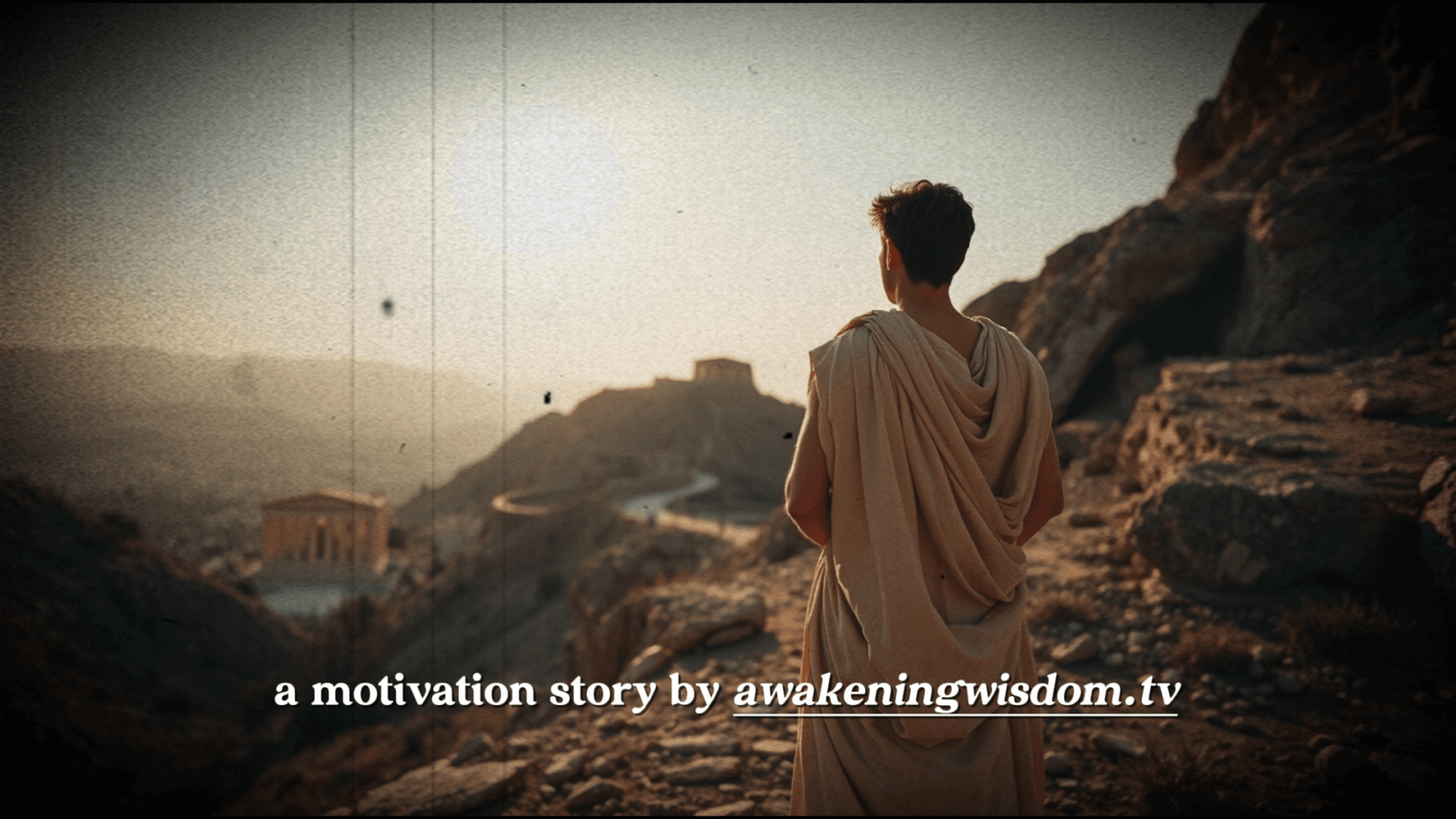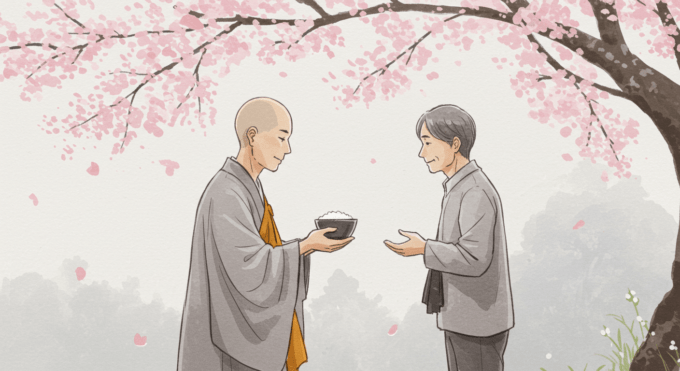The Ancient Greeks believed that true happiness came from virtue, not fleeting pleasure. Discover how one philosopher taught a young man this life-changing lesson.
The Young Man’s Pursuit of Pleasure
In the grand city of Athens, where philosophy flourished and great minds debated the nature of life, there lived a young man named Nikos.
Nikos was the son of a wealthy merchant, and unlike the philosophers who spent their days in deep thought, he pursued only one thing—pleasure.
- He indulged in fine food and wine, never worrying about tomorrow.
- He surrounded himself with luxury, believing wealth was the key to happiness.
- He spent his nights in the grandest celebrations, living for the moment.
“Life is meant to be enjoyed,” he often said.
But no matter how much he indulged, he never felt truly satisfied.
There was always a greater feast, a finer drink, a more exciting thrill—but the feeling of joy never lasted.
And so, one day, in frustration, Nikos sought the wisdom of the famed philosopher, Aristotle.
“Tell me, great teacher,” Nikos asked, “why does pleasure never satisfy me?”
Aristotle smiled and motioned for Nikos to follow him.
“Let me show you,” he said.
The Two Paths: Pleasure vs. Virtue
Aristotle led Nikos to a fork in the road, where two paths stretched before them.
The first path was wide and filled with delights—fruit trees overflowing, music in the air, laughter echoing from a distant festival.
The second path was narrow and steep, with few pleasures in sight. It wound up a rocky hill, where the sun blazed hot, and the journey looked long and difficult.
“Which path would you choose?” Aristotle asked.
Nikos laughed. “The first, of course! Who would choose struggle over joy?”
Aristotle nodded but said nothing.
Instead, he took the steep path upward, and though reluctant, Nikos followed.
The True Test of Happiness
The journey was difficult.
Nikos sweated under the sun, his legs ached, and he longed for the ease of the other road.
“Why must we climb this miserable path?” he groaned.
“Patience,” Aristotle replied.
At last, they reached the top of the hill. And what Nikos saw took his breath away.
From this height, he could see all of Athens below him—the grandeur of the city, the beauty of the Parthenon, the deep blue sea stretching beyond the horizon.
The view was breathtaking, more rewarding than anything he had ever experienced.
“This,” Aristotle said, “is what virtue feels like.”
Nikos frowned. “I don’t understand.”
Aristotle gestured toward the other path—the one filled with pleasures.
“The man who takes the easy road will enjoy himself for a while. But when the food is eaten and the music fades, what remains?”
“Nothing,” Nikos admitted.
“And the man who takes the hard road?” Aristotle continued. “He suffers, yes. But when he reaches the top, he has gained something that can never be taken away—strength, wisdom, and a view that only those who endured the climb can see.”
Why the Greeks Chose Virtue Over Pleasure
Nikos realized then what he had been missing.
The Ancient Greeks believed in eudaimonia—true, lasting happiness—not the fleeting kind that comes from indulging in pleasures.
They understood:
✅ Pleasure is temporary. Virtue is lasting.
✅ Pleasure enslaves. Virtue makes you free.
✅ Pleasure fades. Virtue builds a legacy.
True happiness is not in chasing desires, but in becoming a person of character, discipline, and wisdom.
This is why the Greeks valued courage, wisdom, justice, and self-control—because these virtues led to a life of meaning, not just momentary satisfaction.
The Final Lesson: A Life Well-Lived
As they descended the hill, Nikos was silent, deep in thought.
“Does this mean I must abandon all pleasure?” he finally asked.
Aristotle shook his head.
“Pleasure is not evil, but it must serve virtue—not rule over it. Eat well, drink in moderation, love deeply—but do not let these things control you. Let virtue be your guide, and pleasure will follow where it should.”
From that day on, Nikos lived differently.
He still enjoyed the good things in life, but he also pursued wisdom, discipline, and self-improvement.
He no longer chased happiness—he built it.
And in doing so, he finally found the peace and fulfillment that pleasure alone could never bring.
How to Apply Ancient Greek Wisdom in Your Life
If you want to live a life of true happiness, remember:
1. Seek Meaning, Not Just Comfort
- Comfort fades, but growth lasts forever.
- Choose the path that makes you stronger, not just the one that feels easy.
📖 “Happiness depends upon ourselves.” — Aristotle
2. Let Virtue Guide Your Actions
- Don’t let momentary pleasures control you.
- Make decisions based on wisdom, discipline, and justice.
📖 “We are what we repeatedly do. Excellence, then, is not an act, but a habit.” — Aristotle
3. Enjoy Life, But Don’t Be Ruled by It
- Pleasure is fine in moderation—but it should never be your master.
- Use pleasure to enhance your journey, not to distract you from your purpose.
📖 “The greatest wealth is to live content with little.” — Plato
The True Reward of Virtue
Looking back, Nikos realized that pleasure had never truly fulfilled him.
But the path of discipline, wisdom, and virtue gave him something no feast or luxury ever could—a life worth remembering.
And in the end, that is what the Ancient Greeks always knew:
The good life is not the one filled with pleasure.
It is the one filled with purpose.









Leave a comment